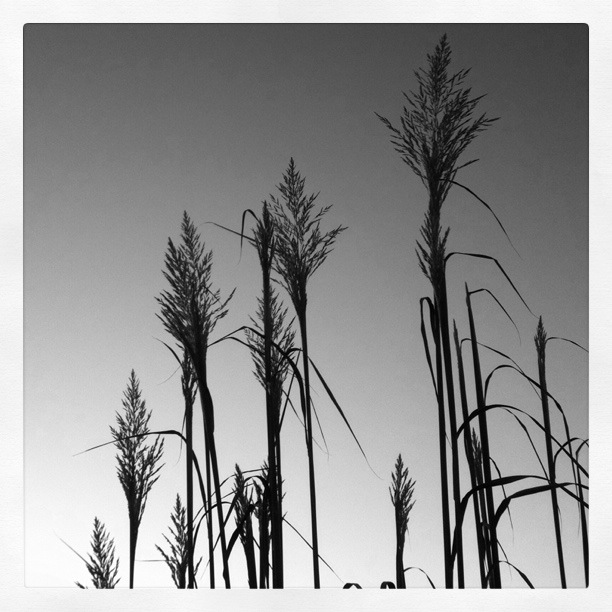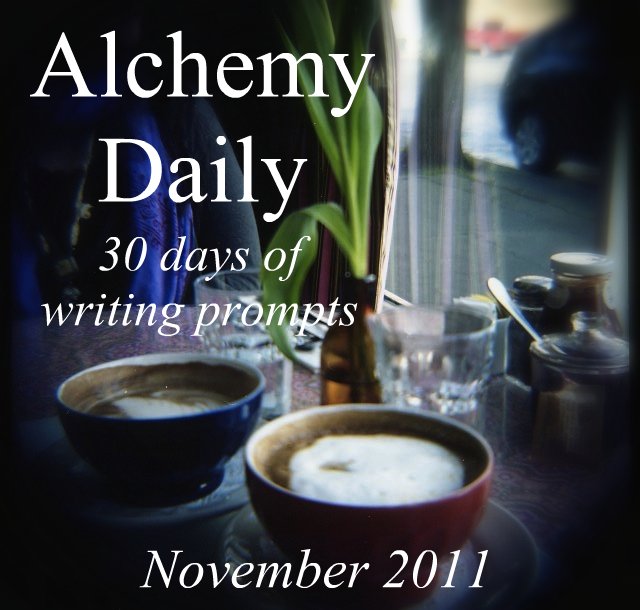How do I know if it's any good? (In The Word Cellar)
 Wednesday, October 19, 2011 at 12:56AM
Wednesday, October 19, 2011 at 12:56AM 
This week for "In The Word Cellar" I'm taking a short break from the MFA mini-series. I'll be back next time with more tips on choosing (or not) an MFA in creative writing.
** ** **
A few weeks ago a student in the current session of Alchemy: The Art & Craft of Writing asked me a question that froze me in my tracks:
I've been thinking about writing a novel for a long time. But each time, I've pushed it out of my head because I didn't think I had the time or skill required for such a big project. I've come back to it recently because the urge to do it seems insistent.
How can a writer gauge if his or her plot is any good?
Holy crap. It's a good question, right?
Substitute any number of words for "plot" and you have the crux of the writers' existential question: How do I know if my _______* is any good?
{*plot, idea, voice, essay, poem, story, novel, play, writing}
How do we know?
Hell if I know.
I read the question and sent her a quick note saying I'd be back with a full answer just as soon as I pulled together my thoughts on the topic. And then I put off answering her for more than a week -- because I was afraid to answer it.
Why afraid? Because it's a question I ask all the time about my own writing: How do I know if it's any good?
But eventually I faced the question and offerd up the most honest answer I knew how to give. I think it's a question that many (most?) of us creative types struggle with, so I decided to share a slightly edited version of my answer here. Let's get the question (and the ways we can answer it) out into the open and talk about it. There's safety (and comfort) in numbers, especially when it comes to the burning questions of creative doubt and fear.
Earlier this year I asked one of my mentors that very same question: How do I know if what I've written is any good? Furthermore, I wondered to him why I couldn't answer that question for myself, especially at this stage in my writing life, when I've been at it for awhile now.
He answered me by quoting from W.S. Merwin's poem "Berryman," which recounts Merwin's experience of working with his mentor (John Berryman).
I had hardly begun to read
I asked how can you ever be sure
that what you write is really
any good at all and he said you can't
you can't you can never be sure
you die without knowing
whether anything you wrote was any good
if you have to be sure don't write
Isn't that wonderful and terrible?
Wonderful because even the great writers struggle with this question. So it's a natural question to have! It's also wonderful because it kind of lets us off the hook. It basically tells us: Just keep writing. Don't worry about the quality; just keep doing what you're called to do.
But it's also terrible, right? Because not being able to gauge your own work is frustrating. Plus, who wants to work at their craft their whole life without knowing if they're improving?
And so I still struggle with this question on a personal and a metaphysical level. How do we know if anything is any good?
Maybe we don't know.
Maybe we don't need to know. Maybe we're asking the wrong question. What would happen if we stopped wondering if our _________* is any good? What if we asked ourselves these questions instead:
- Is this a novel/article/book/story/essay/poem/play I want to write?
- Is this something I need to write?
- Is this something I'd want to read?
- Is this something I feel compelled to tell?
- What will I lose if I don't write this?
So I say: Write it. Writing it (whatever it is) is the only way to allow it to develop, to make sense of it, to figure out where it wants to go and what it wants to be.
On a practical note, I recommend reading and studying published works by respected authors to see how they do it. Learning to read like a writer has been the biggest thing to help me grow in my own writing. I learn so much by looking at the work of others to see how they do specific things with the craft.
Another practical thing to do, after you've written part or all of it, is to ask people you trust to read it. Ask other writers and ask people who love to read. Ask them to tell you the truth with love. Ask for specific feedback on whatever it is you need. Join a writing group, find a workshop, work with an editor or coach. Let your words out into the world at least a little bit, and see what happens.
The question of "good" is difficult when it comes to creative endeavors. It's murky water. On one hand, I don't believe it's possible (or even advisable) to directly compare and rank one piece of writing against another. Apples and oranges, so to speak. On the other hand, some apples do taste better than others. But here again, even that's not quite so simple. I prefer a very cold, crisp apple with a loud crunch and a balanced sweetness-to-tartness ratio. My husband prefers an apple with a softer bite and a sweeter taste. Which apple is better? It depends on who's eating it.
So it's all a matter of taste? No, not all. It's a matter of taste in part.
I told you the water is murky. Determining if something is "good" is subjective, and yet I do believe there are some objective standards by which we can sort (rank? judge? none of these words feel good) pieces of writing. I'm hesitant to make any sweeping claims on this right now because I need to think it through some more. (Chime in with your ideas in the comments if you'd like.)
So first and foremost, I say again: Write it. (Whatever it is.) It keeps coming back to you for a reason. I sometimes think that if we don't tend to the ideas that come our way, they'll eventually leave us and ask someone else to create them. And then we'll mourn the loss.
The only consistent way to learn to write something is to write it. Want to learn to write a novel? Write one. Ditto for essays, short stories, poems, plays. Writing is a practice of practice.
Again, how wonderful and how terrible.
I say all of this knowing that I'm preaching to/teaching myself.
What do you think?
** ** **
In The Word Cellar normally sometimes runs on the second and fourth Wednesday of the month. Read other posts in the series here.
___________________________________________________________________________
 Need an infusion of writing inspiration? How about a nudge to help you find (and write) your unique stories?
Need an infusion of writing inspiration? How about a nudge to help you find (and write) your unique stories?
Join me in November for Alchemy Daily, 30 days of writing prompts, inspiration, and a little bit of magic. You'll get daily prompt emails, an ebooklet of the prompts to keep, inspirational tidbits, and a spot in the private Alchemists forum. All for just $45. More details and registration are here.
 creativity,
creativity,  in the word cellar,
in the word cellar,  writing,
writing,  writing tips
writing tips 

